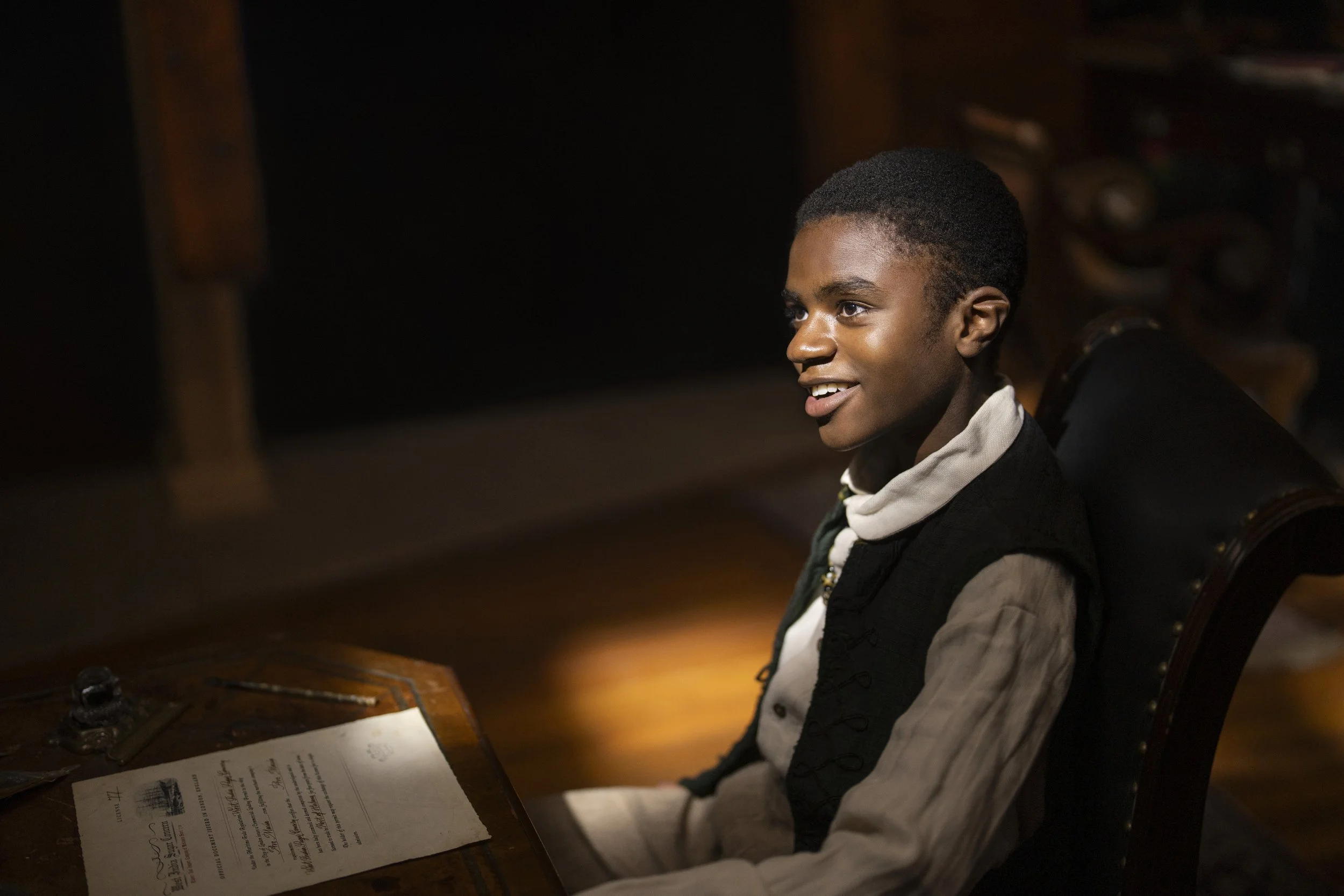Washington Black: New Series Softens an Acclaimed Novel’s Edge for Popular Appeal
By Liam Lacey
Rating: B
Canadian author Esi Edugyan’s acclaimed Washington Black from 2018 used the framework of a 19th century adventure novel crossed with a slave narrative for an inventive reframing of Black history.
Written as a first-person account by its hero, in prose by turns radiantly lyrical and precisely observed, the book follows the intellectually and artistically gifted title character from childhood on a Barbados slave plantation in 1830, through world-travelling adventures as he becomes an artist, marine biologist, and inventor.
The new eight-part Hulu series, Washington Black (on Disney+ in Canada), produced by Sterling K. Brown and created by Selwyn Seyfu Hinds, shares the bones of the narrative and the novel’s focus on Black excellence and achievement, rather than histories of trauma.
But otherwise, the series — apparently targeting a young adult audience — is a popularizing downgrade from its source material. The writing team has toned down the book’s violence and moral ambiguity, characters’ motives are simplified, and adventures and romantic complications pad out the running time.
Those limitations aside, it’s a watchable series with a charismatic cast, colourful production values, and a teasing flashback structure that keeps viewers guessing about the character’s histories.
The series begins not in the grim cane fields of an 1830 Barbados slave plantation where the novel begins, but seven years later in Halifax, where George Washington Black (Ernest Kingsley Jr.) has migrated.
Living under the pseudonym Jack Crawford, he’s a handsome 19-year-old dock worker, and aspiring inventor. He’s lives in a boarding house run by the Black community’s unofficial mayor and protector, Medwin (Sterling K. Brown).
Early in the first episode, Jack meets and falls for Tanna (Iola Evans), a young woman with golden ringlets, who has just arrived from England with her widowed father (Rupert Graves), another inventor and scientist.
From the benign start in Nova Scotia, the story jumps back eight years, to when the 11-year-old George (a beguiling Eddie Karanja) works cutting cane at a Barbados sugar plantation. The child, nicknamed Wash, is singled out by the owner’s inventor brother, Christopher “Titch” Wilde (Tom Ellis), who thinks the boy’s size would make him suitable ballast for his new “Cloud Cutter” blimp invention.
Soon though, he’s less interested in the boy’s weight than his wunderkind gift for drawing and his grasping scientific concepts. Titch takes him on as a servant and apprentice. When a violent death occurs on the plantation for which Wash might be blamed, Titch and Wash escape in the “cloud cutter,” sailing out over the ocean and the beginning of a series of globe-hopping adventures.
The adventures of the child Wash all seem to lead to teaching moments as he encounters pirates, rebels, and abolitionists, each of whom offer a role model or example to avoid. One of these encounters (not from the book) is with the historical figure Nat Turner (Jamie Hector) leader of the 1831 Virginia slave rebellion, and symbol of Black militancy.
“I don’t bite. At least not our people,” growls Turner, but Wash is obliged to step in when Turner threatens to cut Titch’s throat. “He’s all I have,” the boy cries.
The later action in Nova Scotia involves a subplot about a relentless bounty hunter, John Willard (Billy Boyd), trying to track down Wash. But in the series’ most obvious attempt to reach a wider audience, much screen time is devoted to Wash’s budding romance with Tanna, whose mother was from the Solomon Islands, and who passes as white.
Their affair is gussied up with Britcom paraphernalia of frocks and flirtatious banter and even a romantic rival, a rich young cad, William McGee (Edward Bluemel) who Tanna’s father insists she marry to bail out his business and keep her in proper society.
“You are a child of England, a child of empire. That is the skin you must inhabit!” he insists.
Fortunately, for the young rom-com fans of the series, Wash does not have to contend with the disfiguring facial scar he wears in the book. As well, his polished British accent and scientific knowledge go over well with Tanna’s father. Besides, it’s only when Tanna is with Wash that she can truly feel (wince) “seen.”
In the earlier story arc, we reach the point where Titch and Wash go their separate directions in Virginia, assuming they will meet again. Their ambiguous bond remains the core relationship of the original novel: Is Titch, a white saviour, an exploiter, a father figure or ally?
Because reviewers were provided only with the first four episodes of the series, I don’t yet know how it handles the story’s denouement, but let’s hope they keep it complicated. Future episodes promise Charles Dance as a crusty old explorer in the high Arctic, as well as trips to Victorian London and Amsterdam.
Washington Black. Created by Selwyn Seyfu Hinds, based on the novel by Esi Edugyan. Starring Ernest Kingsley Jr., Sterling K Brown, Tom Ellis, Eddie Karanja, Iola Evans, Rupert Graves and Edward Bluemel. All eight episodes available on Disney + beginning July 23.



